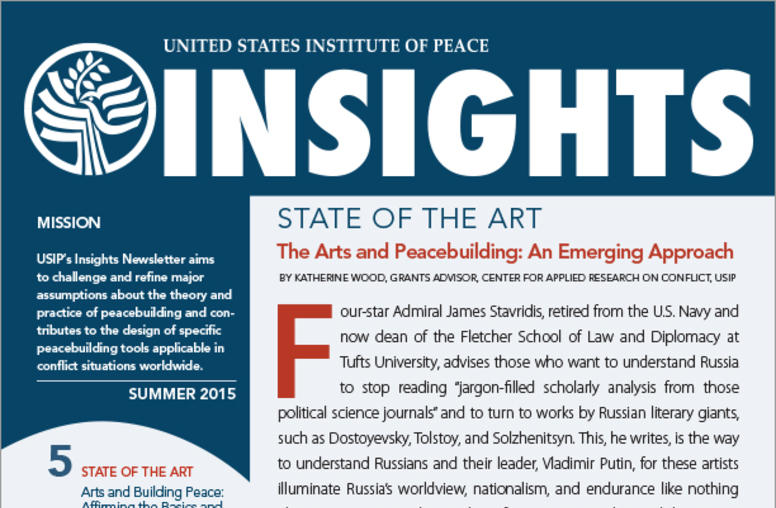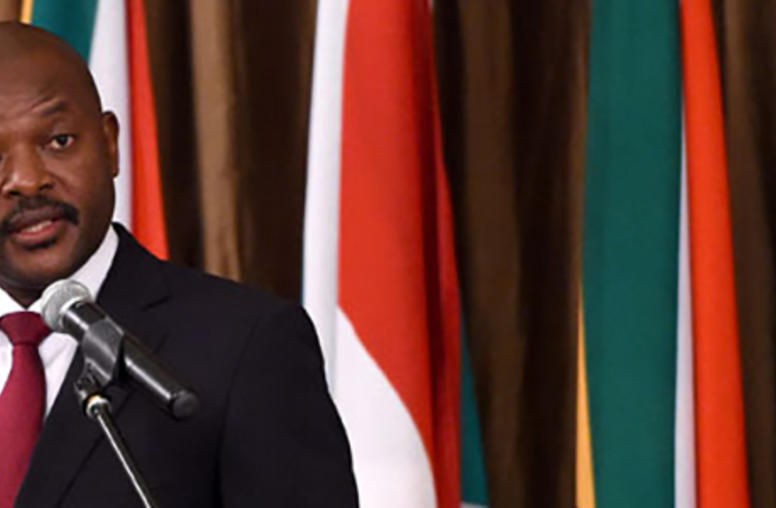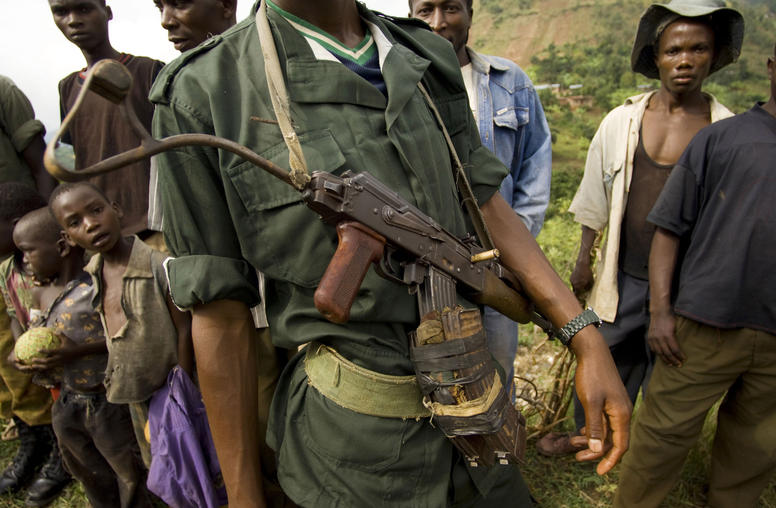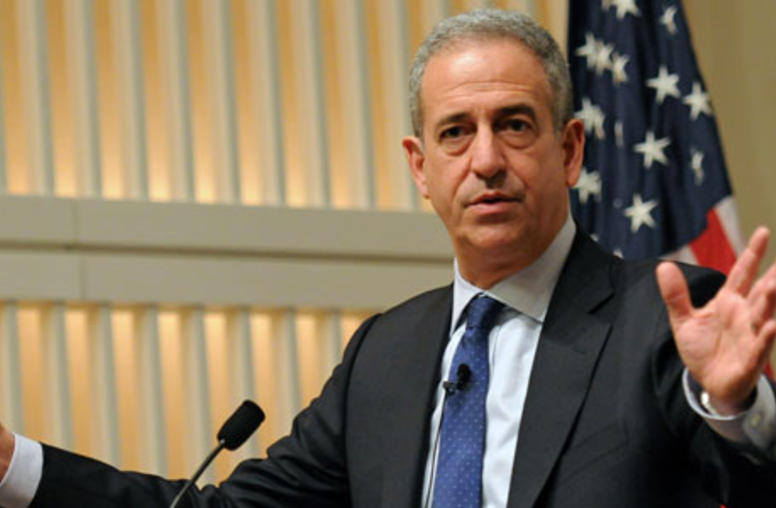The place where Burundian soldiers learn to be peacekeepers is in a remote village accessible only by dirt road, which during the rainy season turns into a river of mud. Shirtless men making red bricks pause to wave, and a few barefoot children scurry forward to watch the passing convoy of foreigners.
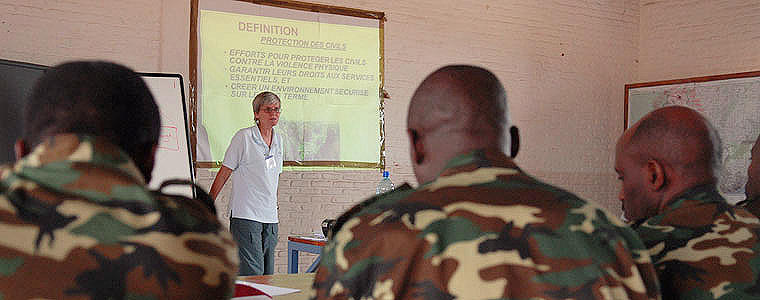
We arrive at our destination, a simple concrete-block training compound a few dozen kilometers outside the capital city of Bujumbura. Young Burundians practice loading and shooting AK-47s and driving armored personnel carriers—but also learn how to utilize interpreters, negotiate with clan elders and leaders of women’s organizations and mediate between groups in conflict.
Although the east African country only recently emerged from decades of conflict, it is contributing in a major way to peacekeeping and security efforts in nearby Somalia. Burundi joined the handful of countries contributing troops to the African Union Mission in Somalia (AMISOM) in 2007. Since then, 24 Burundian battalions have joined with counterparts from Uganda, Kenya, Ethiopia and Djibouti in the AMISOM effort to create the security conditions for a Somali government to establish itself throughout the country for the first time since the 1990s. In the past two years AMISOM has successfully pressured the armed group Al-Shabaab, a self-proclaimed affiliate of al-Qaida, to retreat from Mogadishu and other major urban areas of Somalia.
Since the start of Burundi’s participation in AMISOM, the U.S. Institute of Peace (USIP) has been involved in helping train Bujumbura’s new peacekeeping cadre in communication, negotiation and mediation skills, in addition to practical methods for protecting civilians caught up in conflict situations.
USIP’s training of peacekeepers is carried out in partnership with the Department of State’s African Contingency Operations Training and Assistance (ACOTA) program. Since 2008, USIP’s Academy for International Conflict Management and Peacebuilding has trained more than 2,000 soldiers in 10 countries, including Rwanda, Tanzania, Togo, Ivory Coast, Senegal, Uganda, Burundi, Benin, Sierra Leone and Nigeria. These USIP-trained troops have deployed to United Nations and African Union peacekeeping missions throughout Africa, including Mali (MINUSMA), Darfur (UNAMID), Democratic Republic of Congo (MONUSCO), Cote D’Ivoire (UNOCI) and Somalia (AMISOM).
Later this month, USIP personnel will conduct conflict-management and conflict-resolution training for troops in Djibouti—the first time the Institute has done so in that nation. Those troops are also deploying to the AMISOM peacekeeping operation.
The United States has supported U.N. and other multilateral peacekeeping missions as part of its Global Peace Operation Initiative. ACOTA is designed to enhance the capabilities of African partner countries, regional institutions and the continent’s peacekeeping resources as a whole. The aim is to help prepare them to plan for, train, deploy and sustain sufficient quantities of professionally competent peacekeepers to meet the continent’s needs with only minimal non-African assistance.
Among the African countries supplying peacekeepers, Burundi is making a significant sacrifice to participate in this effort. It is one of the world’s poorest countries and a booming young population. Many of the country’s young have never gone to school. The country’s population was impacted both by decades of civil domestic conflict and the HIV/AIDS epidemic that has ravaged the country.
According to the U.N. Development Program human development index, Burundi ranks 178th of 186 countries. Subsistence agriculture is the mainstay occupation and income-earner in Burundi, and most people reside in rural areas. More than 93 percent of Burundians live below the global poverty line. And according to The Economist/Global Intelligence Unit’s new Global Food Security Index, Burundi ranks near the bottom—103rd out of 105 countries. Burundi also fares poorly on the U.N. Millennium Development goals. Infant and maternal mortality are quite high, and life expectancy at birth is only 59 years of age. It will take many years of political stability and improvement in livelihoods for Burundi to overcome its many challenges.
USIP Academy Senior Program Officers Maria Jessop and Allison Milofsky, as well as contractors Joseph Sany, Fafa Daoune, Dominik Balthasar and I, have delivered our programs in Burundi. All training is conducted in French without translation. Sharing new concepts in another language, with a target group of varying language and educational levels, is the norm for our trainers.
Although the Arusha Peace Accords of 2000 envisaged a unified Burundian army, that goal had to wait until the fighting ended in 2006. The U.N., which provided development assistance and peacekeepers to Burundi following the civil war, supported the reintegration of former combatants into the armed forces. Today’s peacekeeper trainees come from this unsettled history. The trainees are a mix of officers and enlisted personnel. They appear to value greatly the training offered by USIP. And having survived a violent conflict in their own country, they believe they have valuable lessons to share with their Somali counterparts. We have been helping an African state that itself has suffered much from conflict to help other fragile African states also emerge from conflict.
Angela Dickey, a former Foreign Service officer at the U.S. Department of State, lived and worked in Southeast Asia, Africa and the Middle East. She was an interagency professional in residence at the U.S. Institute of Peace from October 2012 to October 2013.
